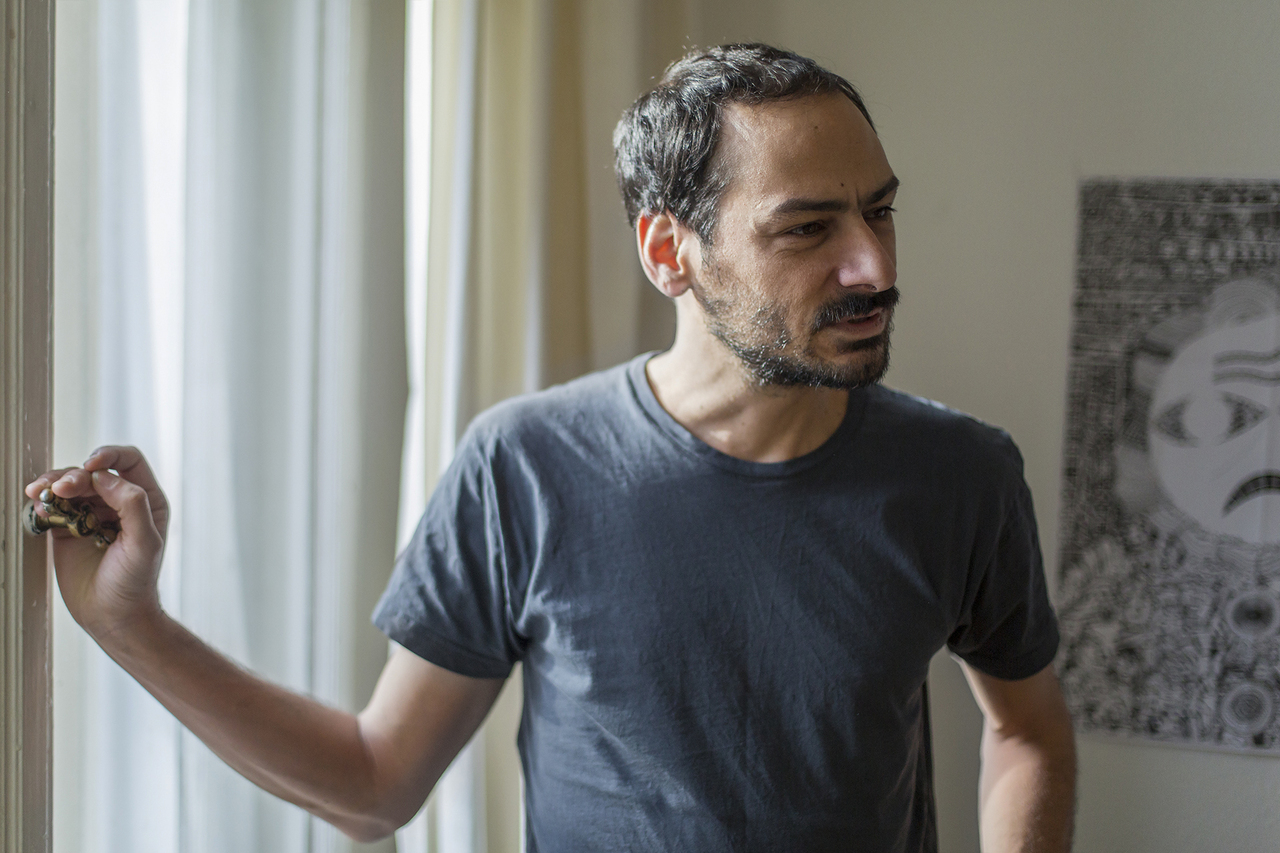Written by:
Share article:
Beirut
Since 2000, he has played in solo and group performances in the Middle East, Europe, Canada and the USA. He has performed with many musicians, some more frequently than others, including: Sharif Sehnaoui, Raed Yassin, Franz Hautzinger, AMM, Alan Bishop, Bill Nace, Burkhard Beins, Michael Vorfeld, Lê Quan Ninh, Mats Gustaffson, Pauline Oliveros, Sam Shalabi, The Scrambled Eggs, Guillermo Gregorio, Gene Coleman, Michael Zerang, Jim Baker, Mike Cooper, Michael Bullock, Vic Rawlings, David Stäckenas, Martin Küchen, Axel Dörner, Ricardo Arias, Jason Khan, The Ex, Thomas Lehn, Joe McPhee, Jean-François Pauvros, Bob Ostertag, Raymond Boni, John Butcher, Conrad Bauer, Tony Buck, Magda Mayas, Peter Evans, Nate Wooley, Greg Kelley.
We met Mazen in Berlin, during the CTM 2016 Festival. This interview was made in two parts: first part in Berlin, in Mazen's apartment, and second part via Skype, one month after.
Hello Mazen. I think we can start by asking why you are in Berlin? I heard you have an artist residency.
Mazen Kerbaj: Yes, I have a 1-year residency from DAAD. I am here as a musician, because as you might know, I am also a graphic / visual artist. So mainly I am here in a music residency; they gave me this very nice house, as you can see. I actually moved here with my whole family, and it’s one year where I present some projects that I want to do here, part of my application. Then you can work on anything you want, it’s really free, as how to give the money to the artist or how to help the artist. It’s very open; I am not obliged to finish something and to give it back, or something. I am really free to do whatever I want.
You come from Beirut. How did you see Berlin at first? Now that you are staying here, you probably see the city differently than a tourist.
MK: I travelled many times to Berlin, but always as a tourist… for a week or something. And all my life I lived in Beirut. Of course I travelled for a month or two for residencies, sometimes, but I never lived outside of Beirut…for 40 years I was there. Berlin is super, especially when you’re not a tourist anymore. You see…there are up to 7 concerts every night, it’s really crazy! And each one of them involves very good musicians. So it’s really great energy for the arts. There are exhibitions, there are many things happening all the time and there are many musicians that you can play with, or collaborate with. It’s like the opposite of Beirut. The scene is very small there, we all know each other and you are very limited in terms of who you can play with, where you can play and when you can play; if you play once or twice, or three times in a year, you would feel very happy. In Berlin I can play up to 7 concerts in a month, sometimes. And each time there is a minimum audience that comes at the concert. It’s really amazing how rich the cultural scene is here.
How do you see and perceive Berlin from the perspective of a person who grew up in a war zone?
MK: Not just a war zone, because Beirut was also cut between East and West.
But Berlin managed to rebuild everything culturally very fast. For some good years it has a lot of substance. So, even if we’re talking about two totally different world - Berlin and Beirut - do you think this can be like an example of good practice?
MK: It’s very nice to see how Berlin managed to do that, but unfortunately I believe that this cannot be achieved in Beirut, because we are very resilient people and with no memory. We try to forget. So they rebuilt very quickly in Beirut, but with a lack of memory of what has happened. They rebuilt to not see what has happened instead of rebuilding and trying to remember what happened. So it doesn’t happen again. In Berlin it’s super because you still see the war stigmata and you still know that people that are living here recognize what happened. The city itself recognizes what happened.
It is aware of its culture.
MK: Yeah, and this is very important. Nowadays, here it’s typical for a city like NY, maybe like in the ‘60s or ‘70s, when it was still cheap. It was pretty cheap here, because it was underpopulated. So many artists came here and then that’s how it goes. Where the artists go, the art goes, the audience goes, and then the people who would gentrify the city would come. Now, Berlin is not very expensive, but more expensive than before, according to people who live here for 10 years. I don’t know how long this will go on. Of course, for some years. But maybe in the long run, artists will not be able to make a living here, so I am glad that I am at least catching this energy that is really very present in the city.





